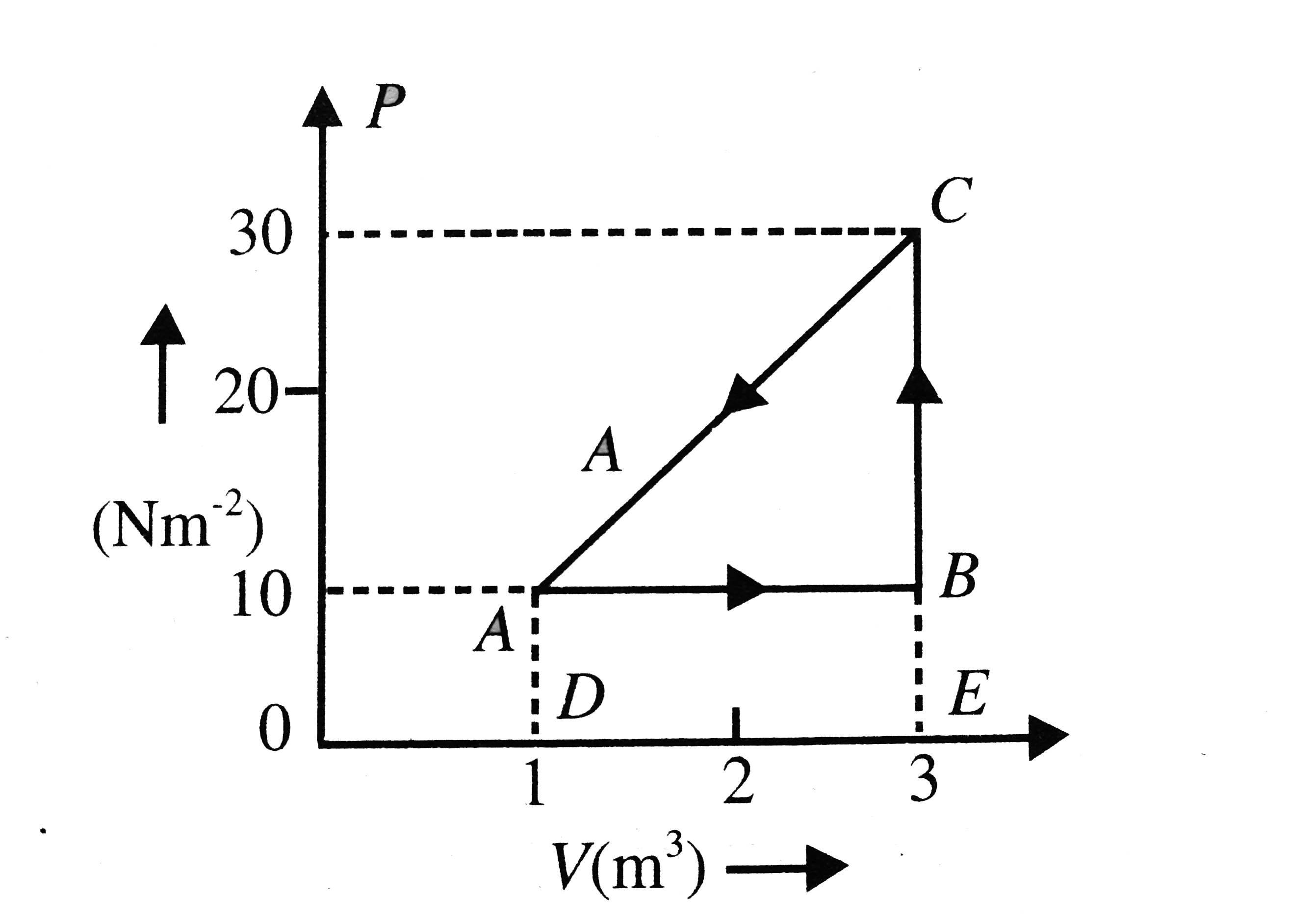In thermodynamic system internal energy decreases by 400 J while it is doing 250J of work.What net heat is taken in by the system in the process.
To solve the problem, we will use the First Law of Thermodynamics, which states:
ΔQ=ΔU+W
Where:
- ΔQ is the net heat added to the system,
- ΔU is the change in internal energy,
- W is the work done by the system.
1. Identify the given values:
- The internal energy decreases by 400 J, so ΔU=−400J.
- The work done by the system is 250 J, so W=250J.
2. Substitute the values into the First Law of Thermodynamics:
ΔQ=ΔU+W
Substitute ΔU and W:
ΔQ=−400J+250J
3. Calculate ΔQ:
ΔQ=−400+250=−150J
4. Interpret the result:
The negative sign indicates that the system is losing heat. Therefore, the net heat taken in by the system is 150 J out of the system.
5. Final Answer:
The net heat taken in by the system is −150J (or 150 J of heat is extracted from the system).
- ΔQ is the net heat added to the system,
- ΔU is the change in internal energy,
- W is the work done by the system.
- The internal energy decreases by 400 J, so ΔU=−400J.
- The work done by the system is 250 J, so W=250J.
ΔQ=ΔU+W
Substitute ΔU and W:
ΔQ=−400J+250J
ΔQ=−400+250=−150J
The negative sign indicates that the system is losing heat. Therefore, the net heat taken in by the system is 150 J out of the system.
The net heat taken in by the system is −150J (or 150 J of heat is extracted from the system).
Topper's Solved these Questions
- THERMODYNAMICS LAWS & SPECIFIC HEATS OF GASES BOOK - PHYSICS GALAXY - ASHISH ARORACHAPTER - THERMODYNAMICS LAWS & SPECIFIC HEATS OF GASES EXERCISE - Discussion Question
17 Videos
- THERMODYNAMICS LAWS & SPECIFIC HEATS OF GASES BOOK - PHYSICS GALAXY - ASHISH ARORACHAPTER - THERMODYNAMICS LAWS & SPECIFIC HEATS OF GASES EXERCISE - Conceptual MCQs Single Option Correct
21 Videos
- PHOTOELECTRIC EFFECT AND MATTER WAVESBOOK - PHYSICS GALAXY - ASHISH ARORACHAPTER - PHOTOELECTRIC EFFECT AND MATTER WAVESEXERCISE - Unsolved numerical problems
42 Videos
- WAVE OPTICSBOOK - PHYSICS GALAXY - ASHISH ARORACHAPTER - WAVE OPTICSEXERCISE - Unsolved Numerical Problems
28 Videos
Similar Questions
In a thermodynamic system,internal energy decreases by 300J when it is doing 350J of work.What net heat is taken by system in the process?
View SolutionHeat equivalent to 50 joule is supplied to a thermodynamic system and 10 joule work is done on the system. What is the change in the internal energy of the system in the process ?
View Solution
Knowledge Check
A system absorbs 50 kJ heat and does 20 kJ of work. What is the net change in the internal energy of the system ?
AIncrease by 30 kJBDecrease by 30 kJCIncrease by 70 kJDDecrease by 70 kJA system absorbs reversibly 600 J of heat and performs 250 J of work. The increase in the internal energy of system is :-
A850 JB250 JC600 JD350 JA system has internal energy equal to U. 600 J of work is done on the system when 450 J of heat is lost. The final energy of system is
AU + 1050 JBU - 150 JCU + 150 JDU-1050 J
An ideal gas is taken round a cyclci thermodynamic process ABCA as shown if Fig. If the internal energy of the gas at point A is assumed zero while at B it is 50 J. The heat absorbed by the gas in the process BC is 90 J.
(a) What is the internal energy og the gas at point C ?
(b) How much heat energy is absorbed by the gas in the process AB?
(c ) Find the heat energy rejected or absorbed by the gas in the process CA.
(d) What is the net work done by the gas in the complete cycle ABCA ?

View SolutionWhat is the internal energy of the system, when the amount of heat Q is added to the system and the system does not do any work during the process?
View SolutionApply first law of thermodynamics to show that the change in the internal energy of a system is equal to the heat given to or taken from the system in an ischoric process.
View SolutionThe work done by a system is 8 J, when 40 J heat is supplied to it. The change in internal of the system during the process
View SolutionA system has internal energy equal to U1,450J of heat is taken out of it and 600J of work is done on it. The final enegry of the system will be
View Solution
